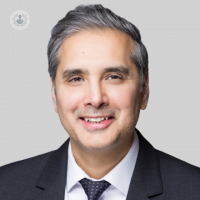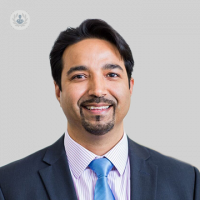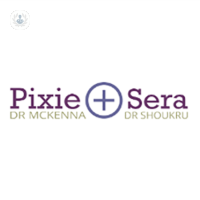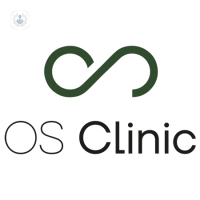What is musculoskeletal pain?
Musculoskeletal pain can include pain felt anywhere in your bones, muscles, ligaments or tendons. The location of the pain, its severity, and how widespread it is depends on what condition or injury you have.
The type of pain you experience is related to whether it comes from your bones, muscles or tendons:
- Muscle pain can be quite intense, particularly when you move it. You may also experience spasms or muscle stiffness
- Bone pain can be more intense than muscle pain, but is often present as a dull ache or throbbing
- Pain in the tendons can vary depending on use. Sometimes the pain can be so intense that you are unable to move the affected joint.
If you have musculoskeletal pain, you might also experience knock on effects such as fatigue, trouble with sleeping or a sense that your body has been overworked.

What causes musculoskeletal pain?
In most cases, musculoskeletal pain is caused by an injury. Injuries come in two forms:
- Acute – meaning the injury was sudden and caused by an accident or extreme use
- Wear and tear – the injury has developed due to chronic overuse
Wear and tear injuries are incredibly common and affect a large proportion of the adult population. For example, back pain is the single biggest cause of disability in the UK. Postural problems and repetitive strain from work can both result in musculoskeletal pain.
In rarer cases, musculoskeletal pain can develop as the result of:
- inflammatory conditions such as rheumatoid arthritis or lupus
- chronic conditions such as fibromyalgia
- nerve compression, such as carpal tunnel syndrome
How is musculoskeletal pain diagnosed?
In many cases, if you have an injury, diagnosis is straightforward, though you may sometimes need an X-ray or other type of scan to assess the damage that has occurred.
In other cases, where pain has gradually come on over time or you haven’t recovered from an injury as much as you would have expected, diagnosis can be more complicated. Your doctor will ask about your medical history and symptoms, and might conduct some tests to see what you are able to do and what you are restricted from doing because of the pain.
How is musculoskeletal pain treated?
Treatment depends on the cause. For injuries, rest and support can help bones or muscles to repair, and you will be advised to gradually exercise the affected area to preserve function. In the meantime you may be prescribed medication to reduce swelling in the site of the injury.
More complex injuries may require surgical correction, either because:
- the tendons on the muscles cannot heal on their own
- the bone would otherwise heal incorrectly
Injuries from overuse can be treated in many ways:
- Physiotherapy can help relieve pain and avoid movements which exacerbate the injury.
- Modern non-invasive treatments such as shockwave therapy or stem cell therapy may induce an affected tendon or ligament to heal properly.
In situations where the above treatments have not worked and you are still experiencing pain, you may be referred for orthopaedic surgery. Wear and tear injuries on a joint in particular may require partial or total replacement of that joint if the pain is significantly affecting your daily life.
Which specialist treats musculoskeletal pain?
Orthopaedic surgeons, sports medicine physicians, and rheumatologists are all experts when it comes to treating musculoskeletal pain.
05-26-2017 11-09-2023Musculoskeletal pain
Dr Shabaaz Mughal - Sports medicine
Created on: 05-26-2017
Updated on: 11-09-2023
Edited by: Conor Lynch
What is musculoskeletal pain?
Musculoskeletal pain can include pain felt anywhere in your bones, muscles, ligaments or tendons. The location of the pain, its severity, and how widespread it is depends on what condition or injury you have.
The type of pain you experience is related to whether it comes from your bones, muscles or tendons:
- Muscle pain can be quite intense, particularly when you move it. You may also experience spasms or muscle stiffness
- Bone pain can be more intense than muscle pain, but is often present as a dull ache or throbbing
- Pain in the tendons can vary depending on use. Sometimes the pain can be so intense that you are unable to move the affected joint.
If you have musculoskeletal pain, you might also experience knock on effects such as fatigue, trouble with sleeping or a sense that your body has been overworked.

What causes musculoskeletal pain?
In most cases, musculoskeletal pain is caused by an injury. Injuries come in two forms:
- Acute – meaning the injury was sudden and caused by an accident or extreme use
- Wear and tear – the injury has developed due to chronic overuse
Wear and tear injuries are incredibly common and affect a large proportion of the adult population. For example, back pain is the single biggest cause of disability in the UK. Postural problems and repetitive strain from work can both result in musculoskeletal pain.
In rarer cases, musculoskeletal pain can develop as the result of:
- inflammatory conditions such as rheumatoid arthritis or lupus
- chronic conditions such as fibromyalgia
- nerve compression, such as carpal tunnel syndrome
How is musculoskeletal pain diagnosed?
In many cases, if you have an injury, diagnosis is straightforward, though you may sometimes need an X-ray or other type of scan to assess the damage that has occurred.
In other cases, where pain has gradually come on over time or you haven’t recovered from an injury as much as you would have expected, diagnosis can be more complicated. Your doctor will ask about your medical history and symptoms, and might conduct some tests to see what you are able to do and what you are restricted from doing because of the pain.
How is musculoskeletal pain treated?
Treatment depends on the cause. For injuries, rest and support can help bones or muscles to repair, and you will be advised to gradually exercise the affected area to preserve function. In the meantime you may be prescribed medication to reduce swelling in the site of the injury.
More complex injuries may require surgical correction, either because:
- the tendons on the muscles cannot heal on their own
- the bone would otherwise heal incorrectly
Injuries from overuse can be treated in many ways:
- Physiotherapy can help relieve pain and avoid movements which exacerbate the injury.
- Modern non-invasive treatments such as shockwave therapy or stem cell therapy may induce an affected tendon or ligament to heal properly.
In situations where the above treatments have not worked and you are still experiencing pain, you may be referred for orthopaedic surgery. Wear and tear injuries on a joint in particular may require partial or total replacement of that joint if the pain is significantly affecting your daily life.
Which specialist treats musculoskeletal pain?
Orthopaedic surgeons, sports medicine physicians, and rheumatologists are all experts when it comes to treating musculoskeletal pain.
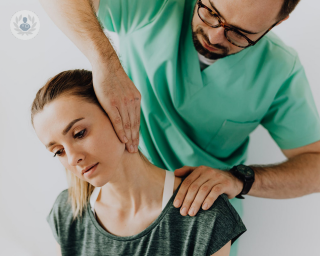

Musculoskeletal assessment: why is it needed and what happens?
By Dr John Tanner
2025-02-05
You might be referred for a musculoskeletal assessment if you have chronic pain in your joint, muscle or nerves. We asked one of our leading sports medicine specialists Dr John Tanner what you can expect during a clinical assessment and what your specialist might be looking for. See more
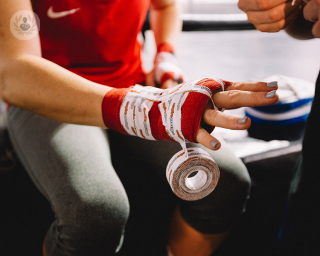

How to mentally recover from a sports injury
By Dr John Tanner
2025-02-05
Understandably, an injury can feel like a huge disappointment for any sports player or athlete. This potentially minor or major complication can form a range of emotional responses, often negative, which can lead to anger, denial and depression. Sports medicine specialist Dr John Tanner clarifies the significance of mental health in recovery. See more
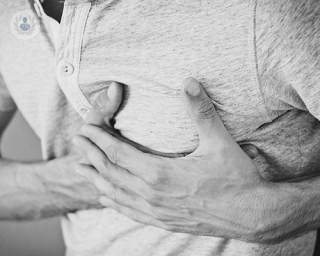

Slipping rib syndrome and chest pain
By Mr Marco Scarci
2025-02-05
Slipping rib syndrome, also known as rib subluxation or clicking rib syndrome, is a condition that occurs when the cartilage of the lower ribs slips out of place, causing pain and discomfort. This condition is more common than often realised and can be misdiagnosed due to its overlapping symptoms with other chest-related issues. Understanding slipping rib syndrome is important for ensuring effective management and relief from symptoms. See more


An expert guide: Nerve conduction studies and EMG
By Dr Taimour Alam
2025-02-05
In this informative guide for patients, revered consultant neurophysiologist Dr Taimour Alam shares his expert insight on nerve conduction and EMG studies. See more
Experts in Musculoskeletal pain
-
Dr Andrew Nicolaou
Pain medicineExpert in:
- Back pain
- Neck pain
- Neuropathic pain
- Pain treatment
- Chronic pain
- Musculoskeletal pain
-
Dr Philip Batty
Sports medicineExpert in:
- Back pain
- Injuries diagnosis
- Joint injections
- Musculoskeletal pain
- Sports injuries
- Sports medicine
-
Dr Anthony Ordman
Pain medicineExpert in:
- Neuropathic pain
- Musculoskeletal pain
- Joint pain
- Cancer Pain
- Chronic pain
- Reflex sympathetic dystrophy syndrome (RSD)
-
Professor Neeraj Saxena
Pain medicineExpert in:
- Back pain
- Neck pain
- Fibromyalgia
- Musculoskeletal pain
- Chronic pain
- Osteoarthritis
-
Dr Zbigniew Kirkor
Pain medicineExpert in:
- Back pain
- Musculoskeletal pain
- Neck pain
- Platelet-rich plasma
- Osteoarthritis
- Stem cells
- See all

Cleveland Clinic London Hospital
Cleveland Clinic London Hospital
33 Grosvenor Place, SW1X 7HY
No existe teléfono en el centro.
By using the telephone number provided by TOP DOCTORS, you automatically agree to let us use your phone number for statistical and commercial purposes. For further information, read our Privacy Policy
Top Doctors

Pixie and Sera
Pixie and Sera
5 Devonshire Pl, London W1G 6HL
No existe teléfono en el centro.
By using the telephone number provided by TOP DOCTORS, you automatically agree to let us use your phone number for statistical and commercial purposes. For further information, read our Privacy Policy
Top Doctors

OS Clinic
OS Clinic
OS Clinic, 45 Queen Anne St, London W1G 9JF
No existe teléfono en el centro.
By using the telephone number provided by TOP DOCTORS, you automatically agree to let us use your phone number for statistical and commercial purposes. For further information, read our Privacy Policy
Top Doctors
-
Cleveland Clinic London Hospital
33 Grosvenor Place, SW1X 7HY, Central LondonExpert in:
- Cardiology
- Colorectal surgery
- Minimal access surgery (keyhole surgery)
- Gallbladder surgery
- Diagnostic Imaging
- Ultrasound
-
Pixie and Sera
5 Devonshire Pl, London W1G 6HL, W1G Marylebone LondonExpert in:
- Full Body Check
- Women’s health
- Menopause
- Nutrition and Dietetics
- Health check up
- Sexual health
-
OS Clinic
OS Clinic, 45 Queen Anne St, London W1G 9JF, W1G Marylebone LondonExpert in:
- Hip
- Minimal access surgery (keyhole surgery)
- Joint preservation surgery
- Maxillofacial Surgery
- Orthopaedic surgery
- Orthopaedic spinal surgery
- See all
- Most viewed diseases, medical tests, and treatments
- Polycystic ovary syndrome (PCOS)
- Cardiac screening
- Respiratory infection
- Menopause support
- Alzheimer's disease
- Cluster headaches
- Tension headache
- Chronic headache
- Peripheral nerve block
- Migraine
